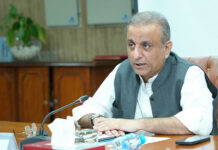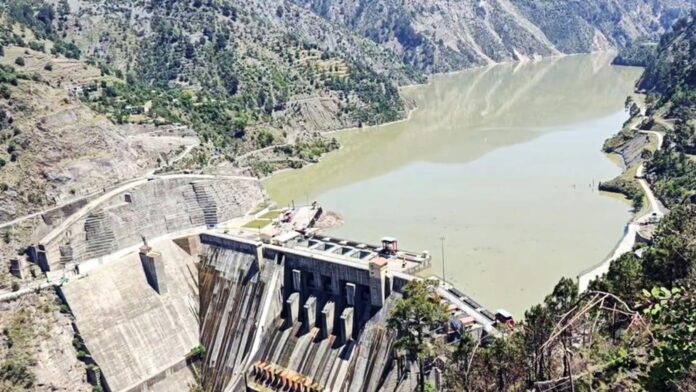India has taken a drastic step by curbing the flow of water through the Baglihar Dam on the Chenab River and the Kishanganga Dam on the Jhelum River, marking a major escalation in the long-standing water dispute between the two countries.
This decision, announced on Sunday, comes as India suspends the Indus Waters Treaty (IWT), an agreement brokered by the World Bank that has governed the distribution of the Indus River system’s waters since 1960.
Pakistan’s Indus River System Authority (IRSA) has expressed grave concern, noting that the water cut from both dams could have serious implications for the country’s water supply and agriculture, particularly in Punjab, where the rivers provide essential irrigation.
The IRSA’s findings indicate a significant reduction in water availability from both the Chenab and Jhelum rivers, which are critical for Pakistan’s agricultural sector.
The suspension of the Indus Waters Treaty by India has further heightened tensions between the two nuclear-armed neighbors, following the killing of 26 people in the Pahalgam attack on April 22, which India cited as the reason for the move.
Pakistan, however, has categorically rejected India’s actions, labeling them as a violation of international law and the terms of the treaty.
In retaliation, Pakistan has closed its airspace to Indian airliners, suspended trade, including third-party trade through India, and officially condemned the suspension of the IWT.
Pakistan’s defence minister warned that any further action to halt water flow would be viewed as an “act of war.”
The Pakistan Commission on Indus Waters (PCIW) has also detailed a series of violations by India in a report submitted to the federal government, including the construction of the 450MW Chenab hydroelectric plant, the 330MW Kishanganga hydropower project, and the upcoming 850MW Ratle project.
The report highlights that these projects have been constructed without proper consultation with Pakistan, as stipulated in the treaty, and without addressing Pakistan’s concerns about the diversion of water from its share.
Pakistan has raised this issue in various international forums, and it is currently seeking support from the United Nations Security Council (UNSC) to resolve the situation. Pakistan is also turning to the World Bank to address the unilateral suspension of the treaty and prevent further violations.
The Kishanganga Dam, located in the north of Kashmir, has been a particularly contentious project due to its potential impact on the Neelum River, a major tributary of the Jhelum River.
Pakistan has previously raised objections to its construction, arguing that it diverts water from the river and will negatively affect the flow of water into Pakistan.
























